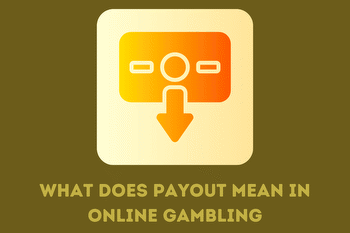How do Casinos Payout Large Sums of Money? The Secret behind Huge Payouts

Have you ever wondered how these crypto casinos manage when Players strike it lucky at the online gambling sites. I mean, those huge jackpots on platforms we often hear about. It’s not like they just have a massive pile of cash in the back room. There’s actually a process for these large payouts.
They check who you are first – that’s a must. Then, they might use methods like checks or even bank transfers. And remember, taxes might come into play, too. But don’t worry; the casino has it all sorted out. Let’s discuss the ins and outs of the payout process.
What Are Payouts?
In simple terms, a payout refers to the amount of money a player receives from the live dealer casinos or gambling platform after winning a game. It’s the prize or reward you get for your successful bet or play.
For example, if you bet $10 on a game with a 2:1 payout and you win, you’d get $20 back. That $20 is your payout.
The payout can also refer to the percentage of money taken in by a game or machine that’s returned to players over time. For instance, if a slot machine has a payout rate of 95%, it means that for every $100 put into the machine, on average, it’ll return $95 to players over its lifespan. The remaining 5% is the casino’s profit.
What Are The Criterias of Payout?
When we discuss the criteria of payouts in the context of casinos and gambling, we’re often referring to the factors or conditions that determine how and when a player is paid their winnings. Here are the main criteria:
Winning Combination:
This is especially relevant for slot machines or video poker, where specific combinations of symbols result in payouts.
Wagering Requirements:
Often associated with bonuses in online casinos. Before you can withdraw any winnings made from bonus money, you need to bet a specific amount, known as the wagering or playthrough requirement.
Minimum and Maximum Withdrawal Limits:
Casinos often have a minimum amount you must win before you can request a withdrawal and a maximum amount you can withdraw within a certain period.
Payment Method:
Some casinos might have specific payout conditions based on the payment method chosen. For instance, certain methods might have higher withdrawal limits or faster processing times.
Account Verification:
To prevent fraud, casinos require players to verify their identity before making significant withdrawals. This can involve sending copies of ID, proof of address, and other relevant documents.
Game Type:
Payout criteria might differ based on the game. For instance, table games like blackjack might have different payout conditions compared to slot games.
Time Frames:
Some casinos have a waiting or processing period before a payout is processed. This period can vary based on the casino and payment method.
Payout Rate or Return to Player (RTP):
Represents the percentage of all the wagered money a slot or game will pay back to players over time. For example, an RTP of 96% means that for every $100 played, $96 is returned to players on average.
Bonus Terms:
If you’ve won money while using a bonus, there might be specific terms and conditions related to how and when that money can be withdrawn.
Regional or Jurisdictional Restrictions:
Depending on where you’re playing from, there might be specific rules or taxes associated with casino payouts.
Is There Any Difference Between Real Money Casinos and Crypto Casinos?
Yes, there are some differences between real money casinos and crypto casinos:
Currency Used:
- Real Money Casinos: As the name suggests, real money casinos accept traditional fiat currencies like dollars, euros, pounds, etc., for deposits, wagers, and withdrawals.
- Crypto Casinos: Crypto casinos allow players to deposit, wager, and withdraw in cryptocurrencies, such as Bitcoin, Ethereum, Litecoin, and others.
How Do Casinos Process Large Sums of Money During Payouts?
Everybody wants to know how these online and crypto casinos have established procedures and financial structures in place to handle large payouts. Here’s a look at their approach:
Financial Reserves:
- Pool of Funds: Casinos always keep a pool of funds reserved specifically for payouts. This way, even if multiple players win large sums simultaneously, the casino can handle the payouts without any hiccups.
- Insurance: For some of the largest jackpots, particularly progressive jackpots, casinos may take out insurance policies. If someone wins, the insurance company pays out the jackpot, protecting the casino from a sudden massive expense.
Payment Methods:
- Checks: Large land-based casino winnings are often paid by check.
- Bank Transfers: Online casinos may prefer direct bank transfers for substantial amounts.
- Installments: In the case of mega jackpots, winners might be given the option of receiving the prize as an annuity, meaning they get paid in yearly installments.
Verification Procedures:
- Identity Checks: The casino will confirm the winner’s identity to prevent fraud.
- Gameplay Audit: Especially in online casinos, they may review the gameplay to ensure no irregularities or breaches of terms and conditions.
Promotion and Publicity:
Big wins are good publicity for casinos. They might offer winners a big ceremonial check or host a photo opportunity. This instills confidence in other players, showing that the casino genuinely pays out significant sums.
Collaboration with Game Developers:
In online casinos, some significant jackpots, especially progressive ones, are pooled across a network of casinos. Game developers, like Microgaming or NetEnt, manage these jackpots. When a player wins, the payout comes from this networked pool, not from the individual casino’s coffers.
Tax Deductions:
In jurisdictions where gambling winnings are taxable, the casino might withhold a portion for tax before the payout. This ensures compliance with tax laws and reduces the administrative burden on the winner.
What is RTP?
RTP stands for Return to Player. It’s a percentage that shows how much money a casino game will give back to players over time. For example, if a game has an RTP of 95%, it means that for every $100 played, it should return $95 to players on average. The higher the RTP, the better for players. It’s a way to understand which games might offer better chances of winning in the long run.
Variability:
RTP doesn’t account for the volatility or variance of a game. Two games might have the same RTP, but one could offer smaller, more frequent wins (low volatility), while the other could provide larger, less frequent wins (high volatility).
Importance to Players:
RTP is a useful tool for players when choosing which games to play. A higher RTP generally means a better return over time, but it’s also essential to consider other factors like entertainment value, gameplay mechanics, and potential jackpots.
Setting and Auditing:
Game developers set the RTP when designing a game. Independent testing agencies, like eCOGRA or iTech Labs, then audit and verify these rates to ensure fairness and transparency in reputable casinos.
Conclusion: The Secret Behind Large Payouts On Casinos Online
The “Secret” Behind It:
The secret isn’t much of a secret. Reputable casinos maintain their reputation and customer trust by ensuring they have the funds and procedures to pay out winners, no matter how large the sum.
Some recommended crypto gambling sites that have already made a top spot in this industry never fail to pay huge jackpots. It’s always advised to go for such trusted sites.
They achieve this through sound financial planning, collaboration with other entities, insurance, and adherence to regulations. It’s all about maintaining trust – if players believe they won’t be paid, they won’t play.

































